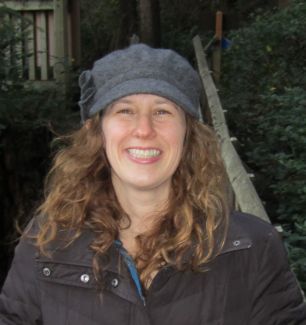
Areas I Teach
Course Information
At Pacific University, all faculty teach a variety of different courses. Typically, we do not use graduate teaching assistants, which means that your classes will be taught by professors and that you will have plenty of opportunities to get to know the faculty in your discipline.
Below I have listed some of the courses that I teach. We are always developing and trying out new classes, so the list may change now and then.
BIOL 204 | General Biology II
BIOL 350 | Principles of Development
BIOL 360 | Symbiosis
BIOL 385 | Junior Seminar
BIOL 490 | Senior Capstone Experience
Education
Ph.D. in Biology, University of Oregon, Eugene, OR, in 2003
Bachelor of Science in Microbiology, University of Wisconsin Oshkosh, Oshkosh, WI, in 1998
Research Interests
Basic area
My research interests are in developmental biology, an interdisciplinary field studying how a fertilized egg undergoes cellular and molecular changes to give rise to a fully formed organism. Genetic mutations, environmental factors, and even the presence of other organisms (e.g. symbionts) can modify the developmental trajectory of an organism. In the case of genetic mutations, sometimes the resulting organism will have a disorder, and in other cases, the embryo cannot fully develop. Recently, a wealth of studies has shown how the presence of certain microbes can influence the development of an organism (e.g. gut microbes can modify brain development in certain organisms). Other studies of developmental symbiosis have demonstrated that a microbial symbiont, Wolbachia, can change the reproductive capability of its host (e.g. mosquitoes). These studies have been used to produce bio-control mechanisms of Dengue fever in use on several continents. Annually, there are 50 million cases of the tropical disease, Dengue fever, also known as break-bone fever. It is caused by a virus which is transmitted by Aedes aegypti mosquitoes. Scientists have utilized the microbial symbiont, Wolbachia, to change the reproduction and/or immune system of its mosquito host. Ongoing field studies monitor whether there is a decrease in the spread of Dengue fever. This is a fascinating time to study developmental symbiosis and its applications on human health and disease!
The Wolbachia Project at Pacific University
This project studies the symbiotic relationship between insect hosts and Wolbachia bacteria. Wolbachia is a maternally inherited endosymbiont estimated to infect between 20 and 76% of all Arthropod species, and has been detected in every insect order. Wolbachia affects species in a variety of ways, from feminization and male killing to cytoplasmic incompatibility of egg and sperm. This bacterium is commonly found in the testes and ovaries of insect hosts, and has been found in the brain and muscle as well. An important effect of Wolbachia infection is the alteration of reproductive capabilities of the host insect. This feature can be applied for bio-control of insects to mitigate disease transmission in humans and in agricultural crops.
The goal of the Wolbachia Project is to determine the prevalence and effects of Wolbachia infection in fruit flies and mosquitoes collected in Forest Grove, Oregon. We will collect these insects in the field and then perform molecular techniques to determine whether they are infected with Wolbachia. We will maintain laboratory stocks from the infected fruit fly strains and study whether Wolbachia affects its reproduction and/or development. Our studies will elucidate whether we have identified a new strain of Wolbachia. Such a discovery could be useful for bio-control mechanisms as well as our overall understanding of how Wolbachia affects host development.
Publications
Stock, S.P., Bordenstein, S. R., Odden, J., Oldenburg, D., Reznikoff, W., Werren, J. H. and M.-A. Selosse. (2010) Symbiosis instruction: Considerations from the education workshop at the 6th ISS Congress. Symbiosis 51:67-73.
Layden, M.J., Odden J.P., Schmid, A. S., Garces, A., Thor, S., and C.Q. Doe. (2006) Zfh1, a somatic motor neuron transcription factor, regulates axon exit from the CNS. Developmental Biology 291:253-263.
McDonald, J., Fujioka, M., Odden, J.P., Jaynes, J. and C.Q. Doe. (2003) Specification of motoneuron fate in Drosophila: integration of positive and negative transcription factor inputs by a minimal eve enhancer. J. of Neurobiology 57(2):193-203.
Odden, J.P., Holbrook, S. and C.Q. Doe. (2002) Drosophila HB9 is expressed in motoneurons and interneurons where it regulates gene expression and axonal projections. J. Neuroscience 22(21):9143-9149.
Recent Conference Presentations (*=undergraduate student)
Jonnsson, E.* and J.P. Odden. Presence of Wolbachia Symbionts Detected in Colorado Mosquitoes. Metropolitan State University of Denver Undergraduate Research Conference, Denver, CO, April 25, 2014.
Arends, T.*, Balas, M.*, Janke, J. and J.P. Odden. Identification of Bacterial 16S Ribosomal Sequences in Alpine Soil at Rocky Mountain National Park. American Society of Microbiology, General Meeting, Denver, CO, May 21, 2013.
May, G. T.* and J.P. Odden. Using the Research-Based High School “Discover the Microbes Within: The Wolbachia Project!” in the College Classroom. American Society of Microbiology Conference for Undergraduate Educators (ASM CUE), Denver, CO, May 18, 2013.
Odden, J. and D.K. Ruch. Pairing a First Year Modeling Course with Introductory Biology. Joint Mathematics Meetings, American Mathematical Society and Mathematical Association of America, San Diego, CA, January 12, 2013.
Kennedy, A.*, Snelgrove, N.*, Saindon, S., Rees, E., Fletchinger, E.*, J. Odden. Prevalence of Wolbachia infections in Colorado collected mosquitoes. Metropolitan State University of Denver Student Research Day, Denver, CO, April 1, 2011.
Rees, E.*, Saindon, S., Snelgrove, N.*, and J. Odden. Wolbachia prevalence in farm-raised Hypolimnas bolina from Malaysia. Rocky Mountain Conference of Parasitologists, Ogallala, NE, September 10, 2010.